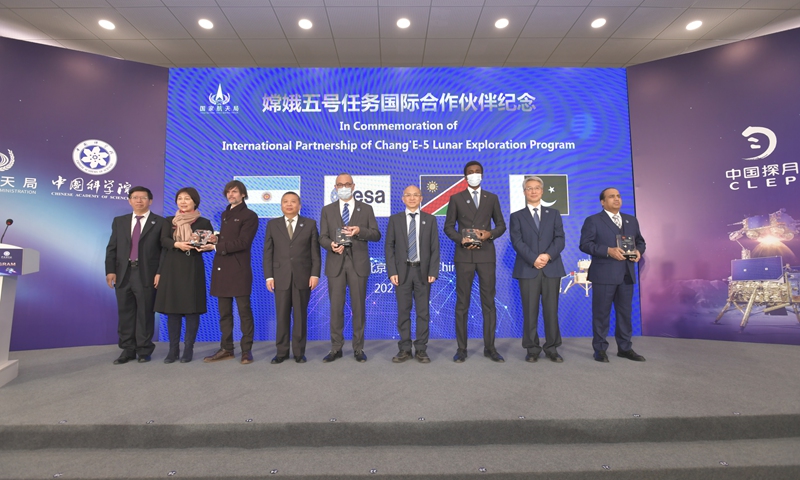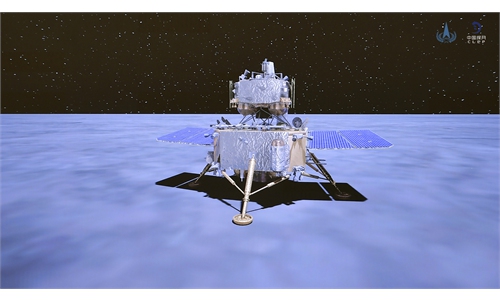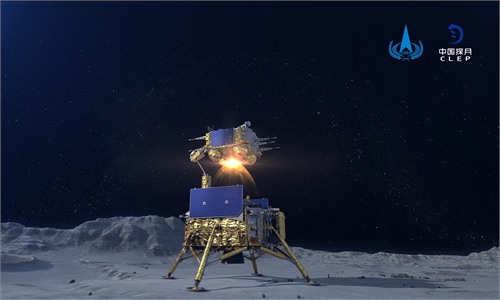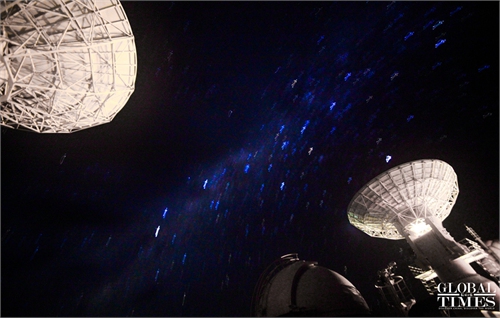China rolls out management regulation on Chang’e-5 lunar samples to boost global cooperation

Delegates receive award at the Monday event in commemoration of international parternership of Chang'e-5 lunar exploration program. Photo: CNSA
China released its Relegations on the Management of Lunar Samples Monday, a milestone event that demonstrates the country's open attitude to practical international cooperation and exchanges in this field.
Global Times learned from China's National Space Administration (CNSA) on Monday that the document drafted by the administration contains nine articles and 37 clauses, covering topics including the storage, management, and use of lunar samples that were brought back to Earth by the country's Chang'e-5 moon probe mission.
In the international cooperation sphere, the document states that management and use of the samples' will be in line with international treaties that China has signed or participated in.
The CNSA encourages researchers from home and abroad to carry out joint space scientific studies on the lunar samples, and is calling for their findings to be shared with each other.
Chinese Foreign Ministry spokesperson Hua Chunying tweeted on Monday: "Representatives from 32 countries and regional organizations participated in the activity 'Access to China's Lunar Exploration' in National Astronomical Observatories on the morning of January 18 in Beijing."
"The international partners of #ChangE5 Lunar Exploration Program were presented with commemoration plaques. China's 'Procedures for Requesting Lunar Sample' was published. After the event, the delegates visited the exhibition of #ChangE5 Lunar Exploration," she wrote in another post.
At the Monday event, the CNSA also awarded the European Space Agency, Argentina's National Space Activities Commission, Namibia's Ministry of Higher Education, Training and Innovation and Pakistan Space and Upper Atmosphere Research Commission with cooperation medals, in recognition of their cooperation efforts during the Chang'e-5 mission.
China launched the Chang'e-5 lunar probe mission on November 24, 2020 from the Wenchang Space Launch Center in South China's Hainan Province.
The 23-day robotic mission brought 1,731 grams of lunar rocks and oil back to Earth on December 17, 2020. It was China's first space expedition that retrieved extraterrestrial samples.
China has become the third country to have achieved this feat, following the Soviet Union and the US.
The CNSA handed over the samples to the National Astronomical Observatories in late December, as the mission has entered its ground application stage.




